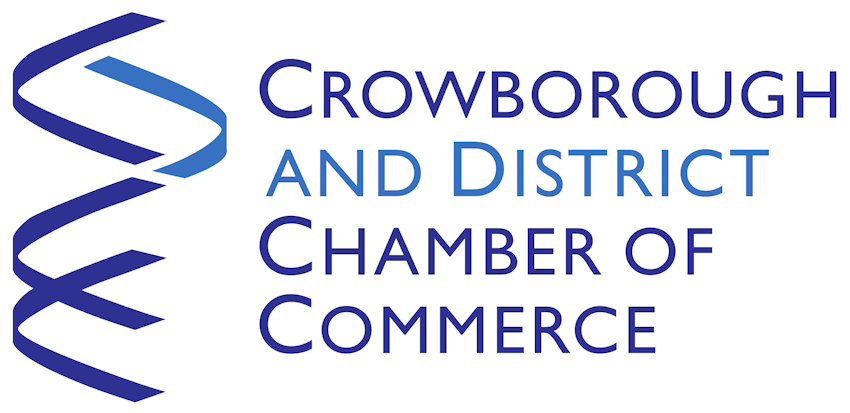As we kick off 2025, many of us are setting goals for the year ahead, both personally and professionally. Strategic planning is the backbone of any successful business. It provides direction, aligns resources with goals, and prepares you for future challenges. But crafting an effective strategy can be daunting without guidance. This is where a business mentor can play a pivotal role, ensuring your strategy is robust, realistic, and results-driven.
Why Strategic Planning Matters
Strategic planning helps businesses:
· Set Clear Objectives and Priorities: Without a clear roadmap, businesses risk drifting aimlessly. Strategic planning helps you focus on what truly matters, aligning efforts with overarching goals.
· Allocate Resources Effectively: Resources such as time, money, and personnel are finite. A strategic plan ensures they are used where they will yield the greatest impact.
· Mitigate Risks and Uncertainties: Every business faces risks, from market volatility to technological disruptions. Strategic planning allows you to anticipate challenges and develop contingency plans to address them proactively.
· Adapt to Market Changes and Challenges: The business landscape is ever-changing. Strategic planning equips you to remain flexible and responsive, staying ahead of competitors and shifting customer needs.
· Measure Progress and Success Over Time: Tracking key performance indicators (KPIs) and milestones provides insight into whether your strategies are working or require adjustment. This data-driven approach fosters continuous improvement.
A well-thought-out strategic plan not only defines your destination but also serves as a guide for decision-making, ensuring all parts of your business are moving in the same direction. Furthermore, it instils confidence among stakeholders, from employees to investors, demonstrating that you have a clear vision and a plan to achieve it.
Strategic planning also fosters innovation. By regularly assessing your position and goals, you identify opportunities to improve processes, introduce new products, or tap into untapped markets. This proactive mindset keeps your business dynamic and competitive in an ever-evolving landscape.
Without a solid plan, businesses risk wasting time, resources, and opportunities. Instead of reacting to problems as they arise, strategic planning empowers you to anticipate and prevent them, paving the way for sustainable growth.
How a Business Mentor Contributes
A mentor can:
1. Facilitate Vision and Goal Setting
They help you define long-term and short-term goals that align with your vision. This ensures every decision contributes to your overall objectives.
2. Provide Objective Analysis
By evaluating your business objectively, mentors can identify strengths, weaknesses, opportunities, and threats (SWOT). This analysis lays the groundwork for informed decision-making.
3. Develop Actionable Plans
They work with you to create realistic, step-by-step plans to achieve your goals. This includes timelines, resource allocation, and contingency plans.
4. Support Decision-Making
Their experience can guide you in making informed, strategic decisions. Whether it’s entering new markets or investing in technology, their insights are invaluable.
5. Monitor Progress
Regular check-ins ensure you’re on track and provide an opportunity to adjust plans as needed. Mentors can also help you celebrate milestones and learn from setbacks.
The Components of a Strategic Plan
A strategic plan typically includes:
· Mission Statement: Defines your business’s purpose and goals.
· Vision Statement: Outlines your long-term aspirations.
· Core Values: Highlights the principles that guide your business.
· SWOT Analysis: Provides a detailed assessment of your business environment.
· Strategic Objectives: Specifies measurable goals.
· Action Plans: Details the steps needed to achieve objectives.
A mentor’s expertise ensures these components are cohesive and actionable, tailored to your unique needs and market conditions.
Practical Steps for Strategic Planning with a Mentor
1. Set a Clear Vision
Work with your mentor to define what success looks like for your business. This vision will serve as the foundation for your strategic plan.
2. Conduct a Thorough Analysis
Use tools like SWOT analysis, market research, and customer feedback to gain a deep understanding of your business’s current position.
3. Define Strategic Objectives
Break down your vision into specific, measurable, achievable, relevant, and time-bound (SMART) goals.
4. Develop an Action Plan
Outline the steps needed to achieve each objective, assigning responsibilities and timelines.
5. Allocate Resources
Ensure your budget, personnel, and tools are aligned with your strategic priorities.
6. Monitor and Adjust
Regularly review your plan’s progress with your mentor. Be prepared to adapt to changing circumstances or unexpected challenges.
Benefits of Working with a Mentor
· Clarity: Mentors help distil complex challenges into clear, manageable tasks.
· Experience: Their knowledge can save you from common pitfalls.
· Accountability: Regular check-ins keep you focused and committed.
· Perspective: An external viewpoint can reveal opportunities and risks you may overlook.
Challenges in Strategic Planning and How Mentors Help Overcome Them
1. Resistance to Change
Many businesses struggle to implement new strategies due to fear or inertia. Mentors provide the encouragement and rationale needed to embrace change.
2. Resource Constraints
Limited budgets or personnel can hinder progress. A mentor helps prioritise initiatives and find creative solutions to maximise resources.
3. Unrealistic Goals
Overambitious objectives can lead to frustration and failure. Mentors ensure your goals are challenging yet attainable.
4. Lack of Expertise
Strategic planning requires skills and knowledge that many business owners lack. Mentors bridge this gap with their expertise.
The Long-Term Impact of Strategic Mentorship
Working with a mentor not only enhances your immediate strategic planning but also builds your capacity for future success. Over time, you’ll:
· Develop stronger leadership skills.
· Gain a deeper understanding of your industry.
· Build a more resilient and adaptable business.
· Foster a culture of strategic thinking within your team.
Conclusion
Working with a business mentor such as Chris Dowling is an invaluable asset in strategic planning. Chris’s expertise and support can help you craft a robust plan that drives growth and ensures long-term success. By leveraging a Chris’s insights, you can build a roadmap to achieve your business’s full potential, navigate challenges effectively, and seize opportunities with confidence. Get in touch and start your business year as you mean to go on!












